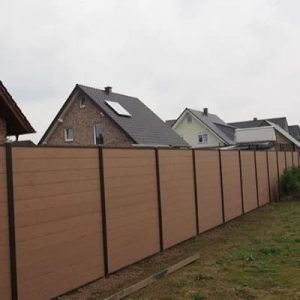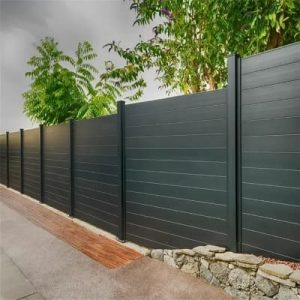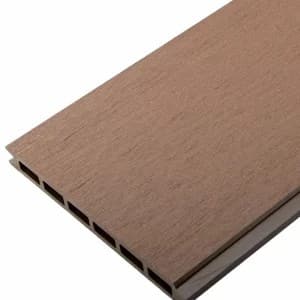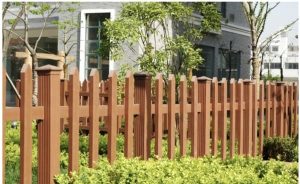Nowadays, environmental noise pollution has increasingly become a serious issue, particularly in first-tier cities and metropolitan regions. Prolonged exposure to high-decibel noise would lead to sleeplessness and other harmful health issues. In this case, acoustic fencing is the cure to solve this problem.
So in this article, we would introduce acoustic fencing to help you choose the best fences for your gardens and backyards.
What is acoustic fencing?
Acoustic fencing is designed to reduce and minimize unpleasant environmental noise in your gardens and backyards, including noise from annoying neighbors, busy streets, various vehicles, etc. And acoustic fences can effectively decrease the outside noise by up to 28 decibels to restore a tranquil environment.

What are the differences between acoustic fencing and normal fencing?
The major difference between acoustic fencing and normal fencing lies in its thickness and weight. Generally, acoustic fencing panels are thicker and heavier than normal fencing panels, which will effectively absorb sound waves and lessen noise.
The second important difference is the absence of spacing or gaps in the acoustic fencing. To minimize gaps for sound to pass through, most acoustic fencing is constructed from solid, tightly fitting tongue and groove boards, and specialized fitted posts.


Factors that affect the effects of acoustic fencing
Height of acoustic fencing
When it comes to the height of acoustic fencing, the higher the better. Your fences’ ability to block and prevent unpleasant noise away from you and your yard will likely increase with its height. Generally, a fence that is six feet tall or higher is able to muffle more sounds. Remember to adhere to the local rules of your community about the height of your acoustic fences.
Placement of acoustic fencing
Although you might not think it matters, the placement of your fences is one of the most important aspects to block noise. The acoustic fencing will be able to block noise more efficiently the closer it is to the source. If you are suffering from traffic noise, the closely your fencing is to the road the better.
You might also position the fences near your favorite spots. Due to the noise having a long distance to travel, it will keep that area quieter.

Construction of acoustic fencing
Due to the way sound travels, acoustic fencing’s design may significantly reduce noise. Because sound may pass through even the smallest openings and gaps, you should make your fences as airtight as possible to ensure that you absorb the noise completely.
A sturdy, impermeable surface will ensure that the least amount of noise is allowed to enter your yard.








